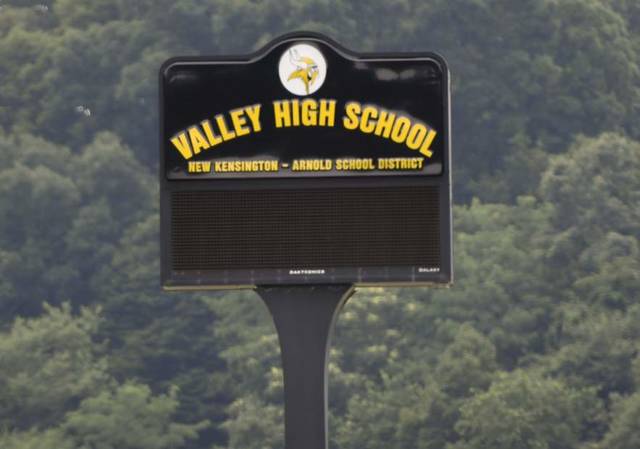https://triblive.com/local/valley-news-dispatch/new-ken-arnold-school-board-weighs-options-for-roof-work-paying-for-it/
New Ken-Arnold School Board weighs options for roof work, paying for it

New Kensington-Arnold School District scrapped a proposal last week to award a $3.8 million contract for a roofing project because some board members raised concerns that bids were obtained by a Tennessee group purchasing company, not the district.
Under the state’s School Code, districts are required to obtain sealed bids for work exceeding $20,100, according to the state Department of Education.
Gary Miller, a spokesman for state Auditor General Eugene DePasquale, said it appears the school district hired an outside firm to manage the bid process rather than seek bids on its own.
“The department has dealt with this type of cooperative purchasing procurement previously, and it is permitted under the Commonwealth Procurement Code,” Miller said.
The school board had a motion before it Tuesday to award a contract to Cleveland-based Garland/Design-Build Solutions Inc. to replace a combined 136,000 square feet of roofing at district buildings.
The bid was obtained through what the district called the “Omnia Partners bidding process.”
Omnia Partners, based in Franklin, Tenn., is a consortium or cooperative buying group similar to an intermediate unit, council of governments or other group that serves as a procurement agent for a local government, according to New Kensington-Arnold Superintendent John Pallone.
“It is my understanding that Omnia Partners follows the required procurement requirements, the same as other buying groups, cooperatives or consortiums on a project like this,” Pallone said.
A spokesman for the state Department of Education could not say if the Omnia Partners process would satisfy bidding requirements under the School Code.
District business manager Jeff McVey said there would have been a “significant savings” — about $167,000 — by wrapping all the roof work into one project.
But some board members raised concerns about how the proposal was obtained.
“That’s a lot of money we’re dealing with here,” board member Steven Sorch said. “I have nothing to guide me as to whether that’s a good number. Maybe it’s a great number. I just don’t know.”
Pallone said costs associated with bidding, such as architectural fees, project specifications and advertising, would drive up the price and amount of time needed to do a project.
Still, solicitor Tony Vigilante said he had legal and ethical concerns about the proposed process and predicted it would not be viewed favorably.
“If we’re going to bid it, we should bid it,” Vigilante said.
Based on the school board’s directive, Pallone said administrators will act to get the roof over the gymnasium at Roy A. Hunt Elementary fixed as soon as possible to prevent further damage. That section of roof is in the worst shape.
“The district will ensure that the project is completed within the limits of all current regulatory and/or legal obligations,” Pallone said in a statement after the school board meeting. “As for the roofs on any other buildings and/or other sections of the Roy A. Hunt building, as directed the district will follow the traditional bid process, including development of bid specifications, advertisement for bids, schedule a bid opening and final approval of the lowest responsible bidder.”
McVey said the district has enough money available to do the roof work at Hunt and to pay for finishing work already underway on the track at the high school.
The district had been considering refinancing $4 million in existing debt and borrowing $4 million to pay for the entire roof project. Bond counsel Joe Muscatello, managing director of Boenning & Scattergood, said a bank loan may cost less than a bond issue under current market conditions.
The costs and fees associated with a bond issue are much higher than a bank loan, Muscatello said. A bank loan can also be done faster.
Muscatello said he would be getting proposals from banks and would review them with Pallone and McVey.
This story has been updated. An earlier version gave an incorrect first name for solicitor Tony Vigilante.
Copyright ©2026— Trib Total Media, LLC (TribLIVE.com)
